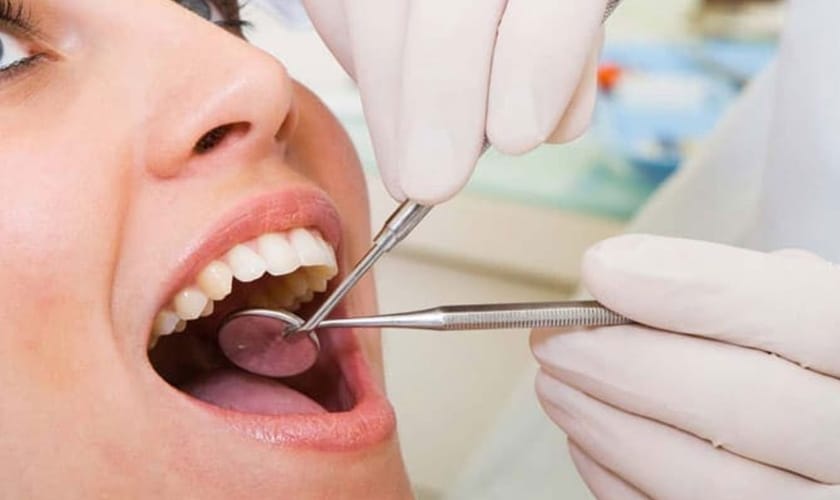
A smile is the most beautiful curve on a person’s face, but what good is it if you’re struggling with oral health problems? While brushing your teeth twice a day might seem like enough, there’s so much more to maintaining healthy teeth and gums. If you’ve ever wondered why oral care should be an essential part of your daily routine, then this blog post is just for you! Here we’ll explore how taking steps toward better dental hygiene can improve not only your mouth but also your overall well-being. So let’s dive in and learn why prioritizing oral health should be at the top of everyone’s list!
The Consequences of Poor Oral Health
Your oral health is important for many reasons. It is essential for speaking, eating, and overall confidence. Good oral health can also prevent other health problems down the road. Poor oral health, on the other hand, can lead to a number of consequences that negatively impact your life.
Some of the consequences of poor oral health include:
-Tooth decay
-Gum disease
-Bad breath
-Tooth loss
–Difficulty chewing or speaking
-Pain or sensitivity in the teeth or gums
-Infections in the mouth or elsewhere in the body
-Increased risk of heart disease, stroke, and other chronic conditions
These are just some of the ways that poor oral health can impact your life. As you can see, it is important to take care of your mouth and make oral health a priority.
The Benefits of Preventative Dental Care
Preventative dental care is one of the most important things you can do for your oral health. By keeping your teeth and gums clean, you can prevent cavities, gum disease, and other problems. Here are some of the benefits of preventative dental care:
1. It Can Save You Money in the Long Run
While preventive dental care may cost you a bit more upfront, it can save you money in the long run. Dental problems that are caught early on are often much easier and less expensive to treat than those that are allowed to progress.
2. It Can Help You Avoid Painful Dental Problems
Nobody wants to experience the pain of a toothache or gum disease. By keeping up with preventive dental care, you can help avoid these problems altogether.
3. It Can Improve Your Overall Health
Your mouth is home to millions of bacteria. If these bacteria are not kept in check, they can enter your bloodstream and cause serious health problems like heart disease and stroke. Preventive dental care helps to keep these bacteria under control and reduces your risk of developing these serious conditions.
Establishing a Good Oral Hygiene Routine
There are many benefits to maintaining good oral hygiene, including preventing tooth decay, gum disease, and bad breath. A good oral hygiene routine should include brushing your teeth twice a day with fluoride toothpaste, flossing daily, and using an antibacterial mouthwash.
Brushing your teeth correctly is important for the removal of plaque and bacteria that cause cavities and gum disease. Use a pea-sized amount of toothpaste on your toothbrush. Aim the brush at a 45-degree angle towards the gum line and use gentle circular motions. Be sure to brush on the inside surfaces of your teeth and to use a light back-and-forth motion on the chewing surfaces of your molars. Spit out the toothpaste after brushing.
Flossing removes plaque and bacteria that are in between your teeth which your toothbrush cannot reach. Use about 18 inches of floss, winding most of it around each middle finger leaving about an inch of floss to work with. Gently insert the floss in between two teeth without snapping it into place. Use a gentle rubbing motion along the side of each tooth before moving on to the next space. Spit out the floss when you are finished.
Mouthwash helps remove plaque and bacteria that cause cavities and gum disease. It can also help freshen your breath. Choose an alcohol-free mouthwash to avoid drying out your mouth which can lead to other problems such as the bad breath. Swish the mouthwash around
Eating Habits for Maintaining Good Oral Health
There are many benefits to maintaining good oral health, and it all starts with proper nutrition. A balanced diet is essential for keeping your teeth and gums healthy. Be sure to include plenty of fruits, vegetables, and whole grains in your diet. These foods provide the nutrients your body needs for good oral health.
In addition to eating a balanced diet, you should also limit sugary snacks and drinks. Too much sugar can lead to cavities and other dental problems. If you do indulge in sugary treats, be sure to brush your teeth afterward.
Finally, be sure to stay hydrated by drinking plenty of water throughout the day. Water helps rinse away food particles and bacteria that can cause tooth decay and gum disease. It’s best to avoid sugary drinks like soda and sports drinks, which can actually contribute to tooth decay.
By following these simple tips, you can help keep your mouth healthy and free of cavities and other dental problems. Remember, good oral health starts with proper nutrition. So be sure to eat a balanced diet and limit sugary snacks and drinks. And don’t forget to drink plenty of water!
Understanding the Role of Regular Checkups and Cleanings
Your oral health is important for many reasons. Not only does it play a role in your overall health, but it can also affect your self-confidence and quality of life. That’s why it’s important to make oral health a priority and part of your daily routine.
One of the best ways to maintain good oral health is to visit your dentist regularly for checkups and cleanings. These appointments are important because they allow your dentist to identify any problems early on and provide treatment if necessary. They also help to remove any built-up plaque and tartar that can lead to tooth decay and gum disease.
If you’re not already seeing a dentist regularly, now is the time to start. Find a dental office that you feel comfortable with and schedule an appointment for a checkup and cleaning. You’ll be glad you did!
Tips for Choosing the Right Dentist to Meet Your Needs
If you’re like most people, you probably don’t give much thought to your teeth and gums until something goes wrong. But your oral health is important, and it’s worth taking the time to find a dentist who can provide the care you need. Here are some things to consider when choosing a dentist:
1. What are your dental needs? If you have healthy teeth and gums, you may only need a general dentist for routine checkups and cleanings. But if you have specific dental needs, such as braces or dentures, you’ll want to choose a dentist who specializes in those services.
2. What is your budget? Dental care can be expensive, so it’s important to find a dentist who fits within your budget. Check with your insurance provider to see what type of coverage they offer for dental care.
3. What is your preferred location? You may want to choose a dentist who is close to home or work so that it’s convenient for you to get to appointments. Or, you may prefer a dentist who has multiple locations, so that you can see the same dentist no matter where you are in the country.
4. What are your preferred hours? Some dentists have evening and weekend hours, which can be convenient for busy people. Others only see patients during normal business hours. Consider what will work best for your schedule when choosing a dentist.
Conclusion
Taking care of your oral health should be a priority in life. Regular brushing and flossing, good diet choices, and regular checkups with the dentist are essential steps for maintaining healthy teeth and gums. Making sure to prioritize oral hygiene is one of the best ways to ensure that you maintain long-term health in both your mouth and other parts of the body. Start today by making small changes like setting reminders or using products specifically designed for taking care of your teeth so that it becomes a daily routine. You’ll soon see why keeping up with your dental habits is vital for your overall wellbeing!
Good oral health has numerous benefits. It can help prevent gum disease, tooth decay, and bad breath. It can also help you keep your teeth and gums healthy as you age. Additionally, good oral hygiene habits can help reduce your risk of developing serious health problems, such as heart disease and stroke.
You should brush your teeth at least twice a day with fluoride toothpaste. If you eat sugary or acidic foods, you may need to brush more often to prevent tooth decay. Additionally, be sure to floss daily to remove plaque and debris from between your teeth.
In addition to brushing and flossing regularly, you can also help keep your mouth healthy by eating a balanced diet and avoiding tobacco products. You should also visit your dentist regularly for professional cleanings and checkups.
